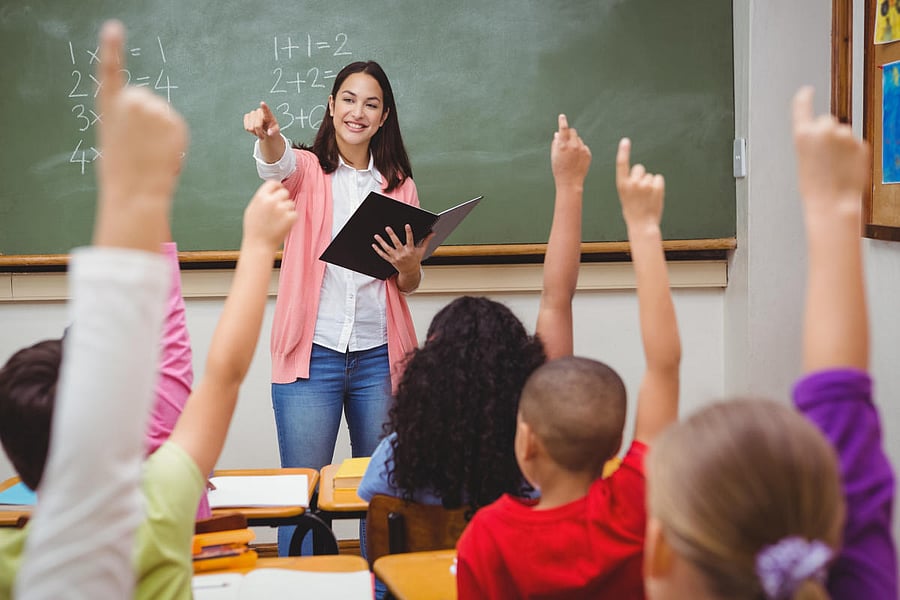Communication with its myriad components cannot be put in one standard box, ruled by one set of guidelines. It varies depending on the context, the intent, comfort and familiarity between the speaker and the listener and the subject of the discussion, among other things. The rules that guide communication in a classroom scenario may not apply when the speaker communicates at home and vice versa.
Students should learn the difference between various forms of communication to shine both in the classrooms and outside. It is only when they do so that they become effective communicators.
Youngsters, who practice communication skills when in academic institutes, go on to become confident and effective communicators in the real world and do something meaningful.
Schools must provide opportunities for students to hone their communication skills.
Here are some suggestions for students to become effective communicators:
Ask questions: Asking questions in the class helps overcome social anxiety and the fear of speaking in front of the audiences. A teenage student of mine once said they felt scared when their teacher randomly selected them to answer a question in the class. They would notice everyone staring at them, waiting to laugh at a simple mistake. This fear of judgement is a severe problem in education, stopping students from speaking. One can overcome this fear by asking more questions in the class. To ease anxiety even more, write the question at home and read it out in the class. It will help you feel more confident.
Avoid sitting with the same group: Students generally sit with their friends in schools. They hesitate to join those they don’t know or are not friends with as it can be quite discomfiting. When they do sit in a different group, they stay silent for the most part. These comfort zones are bad for learning. A good trick is to take small steps and ask one of your friends to introduce you to another group they know. That way, you will get inside a new group and learn to communicate with those you are not very familiar with.
Become a representative: As a class or subject representative, you will talk to the teachers more. This will make you less anxious and more comfortable communicating with your peers, seniors and others. Practising these interactions will help you when stepping into the corporate world, where communication with seniors is an integral part of any job profile.
Participate in debates: Participating in elocution and debate competitions is a sure way to improve communication skills. This tests not only your knowledge but also your confidence and mental endurance. Before attending competitions, practice debating or elocution at home in front of the mirror or family members. Record your oratory practices and understand which aspects of your speech or recitation can be improved upon. Rectifying these niggling problems will make you more confident in your communication.
Speak in the assembly: When I was a student, our school would encourage us to read a news item every morning or lead the morning prayer. It was a small but daunting task, with the entire school watching us. But having the courage to go on the stage for the morning assembly and overcoming the fear of judgement helped me become a more confident public speaker later in my life.
Talk to your teachers and request them to give you a chance to speak in front of your peers and seniors in the morning assembly once things return to normal after the pandemic. You could also try it in online classes. These experiences will help you become an experienced and confident public speaker. Once you are comfortable, you could also host various school events.
Don’t wait for the world to provide you with opportunities to improve your communication skills. Instead, be brave, volunteer and slowly build your confidence to be an effective communicator.
(The author is the founder of an edtech startup)
